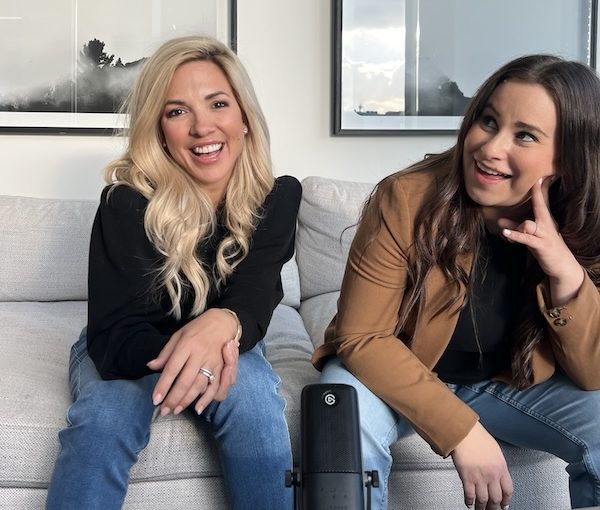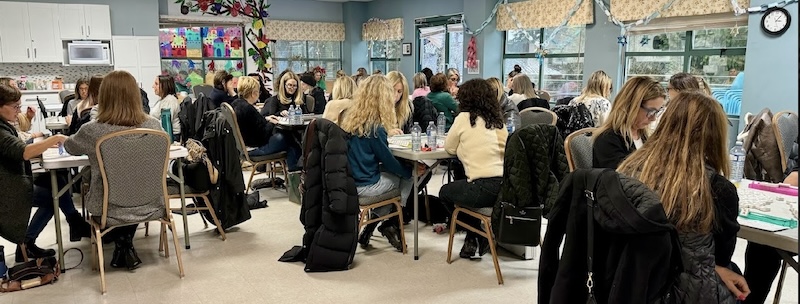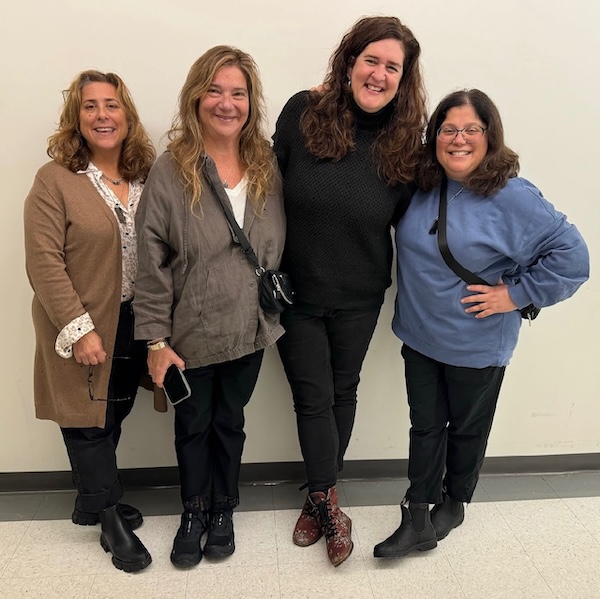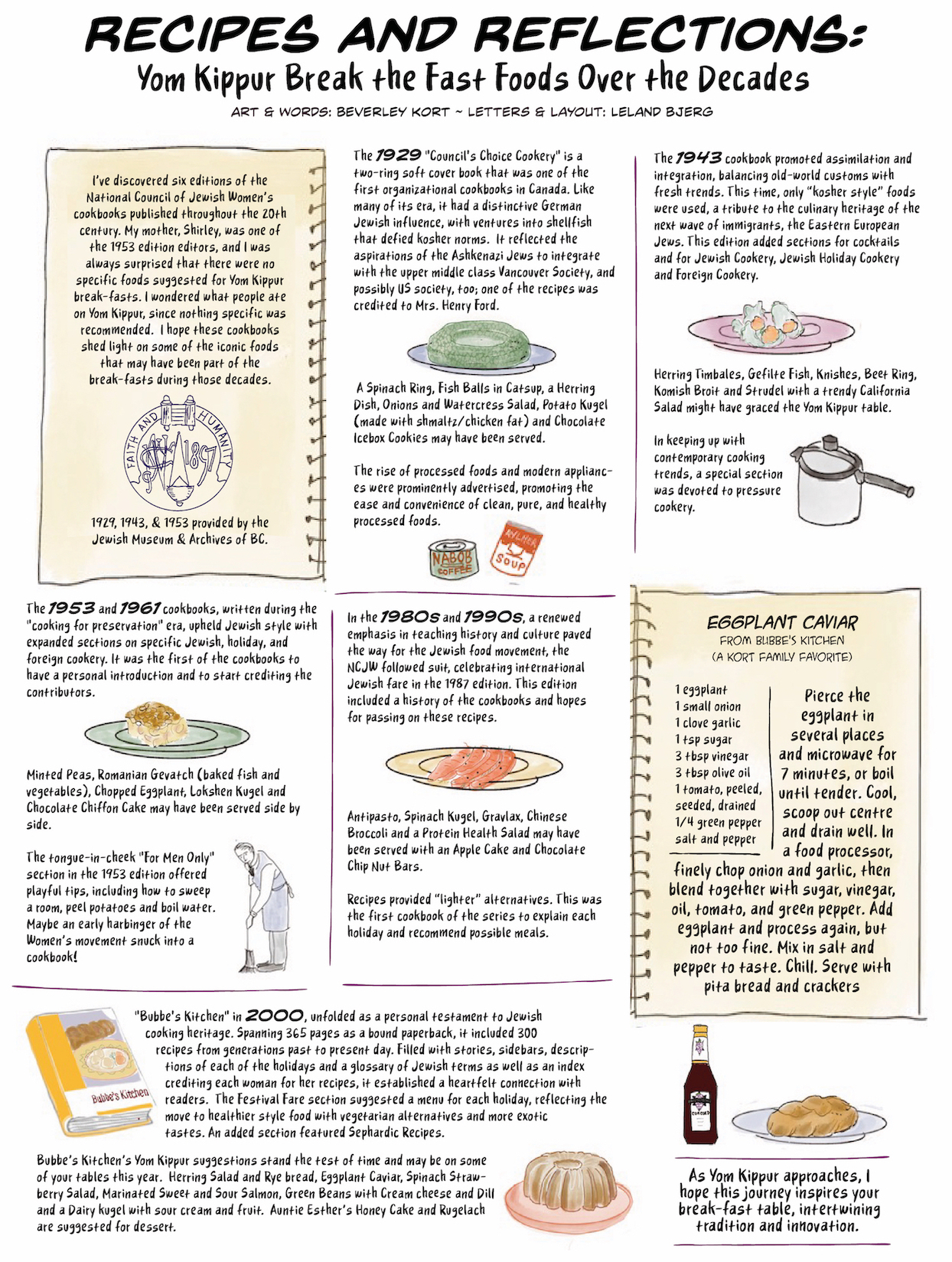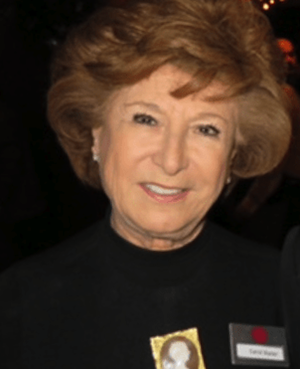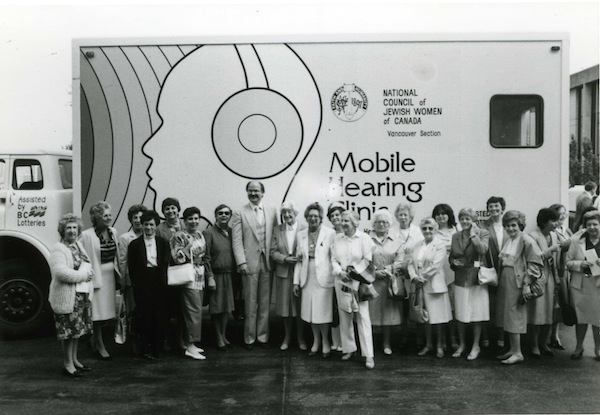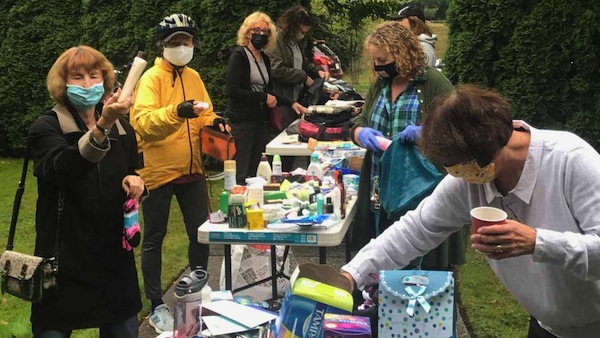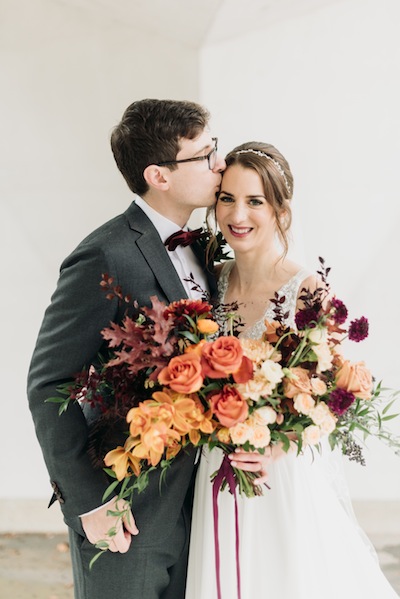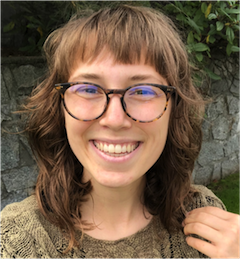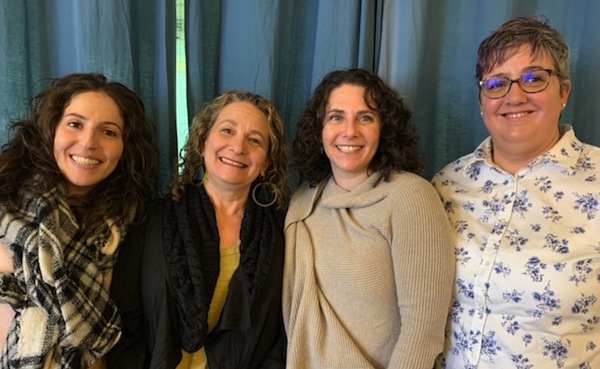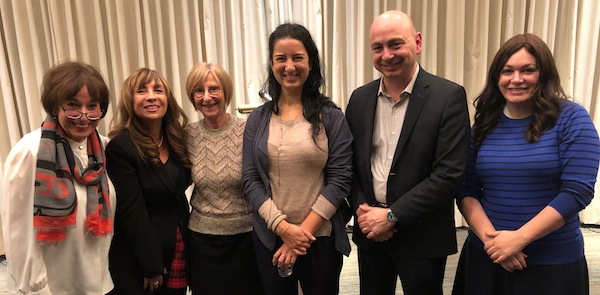Amanda Alvaro, left, and Rachael Segal cohost the podcast Beyond a Ballot, on which they will interview former BC premier Christy Clark live on stage at the Waterfront Theatre on March 25. (photo from NCJW)
International Women’s Day is marked today, March 8, and this month one of Canada’s oldest women’s organizations is partnering with a new female-focused startup to encourage greater engagement with politics.
National Council of Jewish Women, Vancouver branch, is holding a special event March 25 with Beyond a Ballot. The social enterprise launched by Rachael Segal, a Vancouver woman with extensive experience in politics and broadcast journalism, aims to encourage women to get more informed and involved in politics at every level. Segal is cohost of the Beyond a Ballot podcast, which will be recorded in front of a live audience for the first time at this month’s event. She and Amanda Alvaro will interview former BC premier Christy Clark on stage at the Waterfront Theatre on Granville Island.
The collaboration between one of Canada’s oldest Jewish women’s groups and one of the newest innovations on the Canadian political scene is a product of the friendship between Segal and Jordana Corenblum, Vancouver chapter president of National Council.
Corenblum took over less than two years ago as president of the local section of NCJW, which is marking its 100th anniversary this year. The chapter is in the process of a major generational shift, she said, and partnering with a new female-focused organization on a live podcast fit the group’s vision. It is also a consequence of their personal connection.
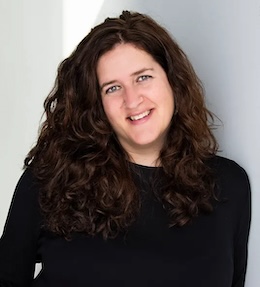
Corenblum’s first job out of university was as a youth director at Congregation Beth Israel, where she met a 14-year-old Segal. They have remained tight ever since.
Corenblum, who is a career youth worker, said she had been urging Segal for some time to create something that educates and encourages women to get more involved in politics. With
Segal launching Beyond a Ballot last year and Corenblum taking over the local branch of National Council, a partnership was a cinch.
Segal holds a master’s in law and worked on Parliament Hill with Conservative members of Parliament, ministers and senators. She has extensive broadcast experience in TV and radio and is a commentator on CBC’s Power and Politics. During her undergraduate studies at the University of Victoria, she was president of the Canadian Federation of Jewish Students and she has worked with the Canadian Jewish Political Affairs Committee. She has served as senior director of the BC Liberal party.
Segal’s podcast cohost, Alvaro, who lives in Toronto, runs a communications agency and has also worked as a political advisor for provincial and federal Liberals. She is a regular commentator on CBC TV’s Power and Politics and appears regularly in national print media.
“For a generation, we’ve been talking about putting your name on the ballot,” Segal said. “We need more women in the Legislature. We need more women in the House [of Commons]. But nobody was ever talking to the women who didn’t want to put their name on the ballot, [who] just wanted to be more engaged. I decided to launch this company, which uses media product, educational product and the building of community to try to talk to women differently about politics.
“My goal is for every woman in Canada to have a daily touch point with politics, whether that means having a conversation with your girlfriends, talking to your kids about something in the news, reading a news story or maybe that means deciding to run,” she said.
The podcast has been “astronomically successful, beyond belief,” Segal said. “Amanda and I put hours and hours a week on it.”
Future plans for Beyond a Ballot include developing a mentorship model that allows women to engage in smaller, more intimate groups, and hosting national conferences to give a platform to women in politics.
“Nothing like that exists right now in this country,” she said.
Beyond a Ballot is all about multi-partisanship and that comes through in the podcast.
“We don’t care what your position is, just that you have one,” said Segal. “Amanda is from the Liberal side, I’m from the Conservative side, but we have a really interesting conversation, where it is not divisive. We don’t go after people based on their political positions. It’s really about education above all else.”
While Segal started Beyond a Ballot from scratch last year, Corenblum took over as the new face of an established organization already in progress.
The Jewish community has a long history of women’s philanthropic and leadership organizations, which have had huge impacts over more than a century. Social changes – not least the increase in women working outside the home in the past several generations – have had an impact on these groups. Moreover, as happens in any volunteer agency, leaders burn out or simply weary of the commitment.
Local leaders approached Corenblum, who had not been involved previously, and urged her to take a role.
“The people who had been involved in the leadership for decades were all stepping back,” said Corenblum. “They were looking to the next generation and courting me and my friends and really flattered us and said, we need you young people to be involved. When you’re in your mid-40s and somebody’s calling you young, it’s flattering. We’ll listen to anything they have to say.”
The relevance of National Council, she said, has not diminished, as there is backsliding on some of the issues facing women. More than many other women’s groups of longstanding, NCJW has always been deeply engaged in political issues, she said.
“I think there’s a lot of overlap between this vast array of Jewish women’s groups,” she said. “The unique piece about National Council is that it is specifically focused on social justice work. They have a long history of being involved in political advocacy.… The entire focus of the organization is about social justice and engagement of women in tikkun olam.”
Corenblum and the mix of new and experienced local leaders are conscious of the embarrassment of riches the Jewish community has in terms of organizations doing good works.
“There doesn’t need to be another organization that is doing programming,” she said. “We don’t need to get in and continue to offer more, because our community has so much to offer. What we really want to focus on is collaboration with organizations that are doing work or have values that are aligned with ours and doing things with them and supporting them in their work.”
One new NCJW initiative is working with Jewish Family Services on a garden-to-table project where they join with families planting vegetables in a community garden, then nurturing and harvesting the produce and cooking healthy meals.
Ideas sometimes fall into their laps. A thread on an online Vancouver Jewish moms group indicated that several families were coming to Vancouver from Israel for a respite from the chaos there. People were asking for car seats, warm clothing, highchairs, toys and other needs for families visiting for a few weeks.
“With National Council support, we were able to create a new local program called Warm Welcome,” Corenblum said. Before long, they had more donations than they could handle.
Ongoing projects the group runs include Books for Kids.
“It’s about getting kids books to families and institutions that don’t necessarily have access to new beautiful books for families and children to take pride in,” she said.
In January, as a local part of a national fundraiser, NCJW organized a games day that raised $8,000 in Vancouver alone to support a counseling service in Israel that has been overwhelmed with demand since Oct. 7.
“The thing that I love about this organization is that it so incredibly flexible,” said Corenblum. “People who are doing small projects around BC can apply to us for funding to help with whatever projects that are going on.”
She calls on anybody who has a passion project or is excited about an idea to reach out and make it happen together. “We really want this to be a grassroots organization for things that matter on the micro scale – and sometimes on the macro scale,” she said.
Corenblum acknowledged that her own politics do not mesh with those of the guest at the live taping her group is sponsoring – but that dialogue across divides is precisely the point, she said.
For Segal, Clark is a great get.
“Christy was on our A-list for our dream conversations,” Segal said, “so she very kindly agreed to do this one not only with us, but in person, which is amazing.”
The partnership with NCJW is an opportunity to reach new audiences, Segal added. “They approached us with this idea,” she said. “I think it’s pretty awesome that they’ve recognized the importance of this conversation and they have been incredible partners and hosts for this event.”
Segal said that, as a Jewish woman in the current climate, finding a supportive community is important.
“We saw everything with Selina Robinson on the provincial level, we’ve seen international issues, and I think there’s a lot of women who are feeling like they want to do more,” she said. “Beyond a Ballot aims to provide women with that opportunity. Engaging with us and knowing that you have a community across the country that is here to support whatever issues are important to you, and give you the tools to be a better advocate for your community, is what women across Canada should know about Beyond a Ballot.”
Tickets for the March 25 event, at 7 p.m., are $18 and available online at eventbrite.ca.
“If you’re going to go and engage in Women’s Month events, please consider putting this one on your calendar because it may not be the sexiest of all topics, but it is definitely the one that impacts your life every day,” Segal said.

